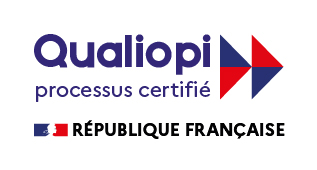This is when people are at risk of relapse, when they are unprepared for the protracted nature of post-acute withdrawal. Clinical experience has shown that when clients struggle with post-acute withdrawal, https://ecosoberhouse.com/ they tend to catastrophize their chances of recovery. The cognitive challenge is to encourage clients to measure their progress month-to-month rather than day-to-day or week-to-week.
Setbacks are a normal part of progress in any aspect of life. In the case of addiction, brains have been changed by behavior, and changing them back is not quick. Research shows that those who forgive themselves for backsliding into old behavior perform better relapse prevention skills in the future. Getting back on track quickly after a lapse is the real measure of success. Relapse is emotionally painful for those in recovery and their families. Nevertheless, the first and most important thing to know is that all hope is not lost.
Relapse Prevention Plan
Insurance plans are not allowed to impose lifetime or dollar limits on substance abuse coverage, so treatment is covered regardless of how many times a person has received treatment in the past. People who attend therapy learn skills and strategies for preventing relapse. During rehab, many people create specific plans for risky situations or times when they feel tempted to use drugs or drink alcohol. The path to sobriety comes with challenges, and many recovery journeys include a period of relapse into alcohol or drug use. This is why it is best to have a solid relapse prevention plan. Common post-acute withdrawal symptoms when recovering from addiction include insomnia and fatigue.
- Once the danger of overdose is removed, you should reach out to your support system and find a safe living environment.
- A therapist or counselor can teach you coping skills to deal with the negative thoughts or cravings that may be driving you to use again.
- Involving other individuals in your recovery is essential to long-lasting change.
- For example, you might have a goal of going to three SMART Recovery meetings a week or going for a run twice a week.
Remembering the reasons someone has for quitting alcohol or substance use may help them stick to their recovery plan, particularly when they are experiencing an urge to reuse. Seeking help for addiction may feel daunting or even scary, but several organizations can provide support. During this phase, a person may not be thinking about using, but they may experience thoughts and behaviors that ultimately lead them toward reuse.
Relapse Prevention Plan: Techniques to Help You Stay on Track
Contact a dedicated treatment provider to learn more about inpatient or outpatient treatment programs to learn more relapse prevention skills and get help today. Such a plan helps minimize the likelihood of lapses in the future. No matter how much abstinence is the desired goal, viewing any substance use at all as a relapse can actually increase the likelihood of future substance use. It can engage what has been termed the Abstinence Violation Effect. It encourages people to see themselves as failures, attributing the cause of the lapse to enduring and uncontrollable internal factors, and feeling guilt and shame.
WVU Today WVU research shows mindfulness may improve … – WVU Today
WVU Today WVU research shows mindfulness may improve ….
Posted: Wed, 15 Nov 2023 15:45:00 GMT [source]
It is remarkable how many people have relapsed this way 5, 10, or 15 years after recovery. Dealing with post-acute withdrawal is one of the tasks of the abstinence stage [1]. Post-acute withdrawal begins shortly after the acute phase of withdrawal and is a common cause of relapse [17].
Physical Relapse
Depending on the duration and severity of a person’s addiction, it can take months or years of abstinence for the brain to recover from substance abuse. When an urge comes, it can be difficult to manage it, especially in the beginning of recovery. A very helpful relapse prevention skill is making a list of healthy family members or friends who are also in recovery that you can call for support. Having a safe person to talk to can help you get past the craving and remember why you do not want to return to previous behaviors. Keeping that list on you at all times is important because it is a readily available resource you can use by quickly calling someone safe. Reflect on what triggered the relapse—the emotional, physical, situational, or relational experiences that immediately preceded the lapse.




